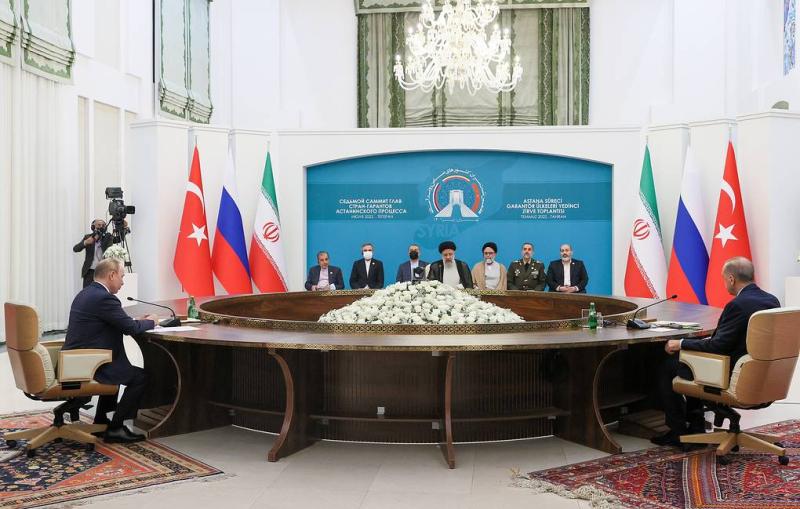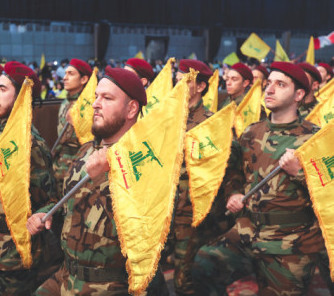
© Sergei Savostyanov/TASS
Top stories from the Russian press on Thursday, July 21st, prepared by TASS
Nezavisimaya Gazeta: Iran comes under US pressure after summit with Putin and Erdogan
The Biden administration is tightening its grip on Iran amid its indirect dialogue with the Islamic Republic on reviving the nuclear deal. After this week’s visit to Tehran by Russian President Vladimir Putin and his Turkish counterpart Recep Tayyip Erdogan, the US Department of State has called on Iran to make a choice between the removal of Western sanctions or becoming "dependent on Russia."
According to Nezavisimaya Gazeta, the Western and Middle Eastern press had attempted to portray the trilateral summit in Tehran as the antithesis to Biden’s recent visit to the region, his first as US president. Iran’s staunchly conservative newspaper, Kayhan, said that the Islamic Republic "has again turned into the region’s center for political and economic diplomacy." And another ultraconservative newspaper boasted that "the visit by Putin and Erdogan would usher in a new world order" and give an impetus to "establishing an alliance against the US sanctions and the dollar."
Military expert Yuri Lyamin told Nezavisimaya Gazeta that Tehran’s close ties with the Kremlin could give the US another reason to put pressure on Iran. "The US could stage some demarches, but on the whole the country, back under [former US president Donald] Trump, made any further tightening of the sanctions without risking a military escalation impossible, having exhausted the policy of 'maximum pressure’ on Iran," he said. Biden’s team followed the same path in an attempt to use the current pressure as a stick in its negotiations with Iran, with a potential easing of restrictions provided there is a compromise on the JCPOA playing the role of the carrot, the expert said.
"All the key sectors of Iran’s economy are still under utterly strict US economic sanctions," Lyamin told Nezavisimaya Gazeta. "Though the US could still somewhat expand those, the pressure won’t be significantly stepped up, since the restrictions imposed on Iran have almost cut the country’s economy off from the Western financial and economic system." Nor does the Biden administration believe that tightening the screws over Iran's nuclear program is easy, since the negotiations have been stalled for months, Lyamin concluded.
Kommersant: Europe getting ready to stop importing Russian gas
On July 21, the Nord Stream gas pipeline will resume pumping gas after scheduled annual maintenance despite the EU’s concerns. However, Russian gas exports will restart at 40% of its capacity and could decrease further, after Russian President Vladimir Putin publicly questioned the quality of the pipeline’s repair in Canada. The European Commission has called on EU member countries to voluntarily cut their gas consumption by 15% from August 1 to April 2023, citing risks of a complete halt in gas flows from Russia, Kommersant writes.
The 15% level could help save 45 billion cubic meters of natural gas, EU Energy Commissioner Kadri Simson said on Wednesday. According to her, if there is a complete cut-off of Russian gas, the EU could face a gap of some 30 billion cubic meters of gas in supply and demand in an average winter and up to 45 billion cubic meters, if the next winter is cold.
Simons said the idea behind the European Commission’s proposal to cut gas use by 15% was to avoid the need for mandatory restrictions on industrial gas consumption. She also said the commission had instructions ready for the bloc’s members should there be a need to make that tough decision. The commission will make this target mandatory for all EU nations in the scenario of a severe shortage of Russian gas, she warned.
According to independent expert Alexander Sobko, in the wintertime, the EU used about 1.8 billion cubic meters of gas in previous years, which means a 15% cut could in theory help it save up to 270 million cubic meters per day. In fact, the savings are meant to get the EU ready for a total shutdown of the gas both through Nord Stream and the other routes - via Ukraine (42 million cubic meters) and the TurkStream pipeline, currently pumping 47 million cubic meters.
Rossiyskaya Gazeta: Russia-Iran energy alliance spells major headache for EU
The continued energy rapprochement between Russia and Iran could become a headache for the West. The two countries will have under their combined control more than 40% of global gas reserves and 15% of oil. Both nations are under the EU and US sanctions, so their alliance would prioritize moves to reduce the negative impact of restrictions and to sell their resources to clients in the Asia-Pacific region. Besides, Russia and Iran could help one another a great deal, Rossiyskaya Gazeta writes.
The two have always been rivals in the hydrocarbon market. In the late 1970s, Europe was planning to build a gas pipeline from Iran, but Washington’s sanctions on Tehran after the Islamic revolution rendered the project impossible to carry out. So, the Soviet Union took over the role of Europe’s key gas supplier.
However, the United States is currently seeking to play its Iranian card again, this time against Russia: Washington is discussing removing its embargo on Iranian oil exports.
Iranian Light oil could be an alternative to Russia’s Urals crude for European oil refineries that depend much on Russian imports, Kirill Rodionov from the Institute for the Development of Technologies in the Fuel and Energy Complex told the paper. According to him, the two blends are of similar quality, and Iran could also export almost as much of its crude to Europe as Russia.
And yet, Iran could benefit more from its cooperation with Russia than from the lifting of the US sanctions, as Tehran has learnt to circumvent those restrictions. Iran needs gas pipelines. It approved a project to build a pipeline to India via Pakistan a while ago, and even got down to building it. However, the project was suspended for political reasons - a disagreement between Pakistan and India erupted. Iran could revive the project and have it rearranged if Russia steps up its mediation.
Iran also needs to expand oil and gas exploration and production, and Russia has competence to assist with that. In its turn, Iran could provide Russia with equipment and share its quite decent oil and gas refining technology, Rossiyskaya Gazeta writes.
Under these circumstances, various mechanisms for overcoming the existing sanctions against both countries become vital, Alexander Kurdin, an expert at the Russian Government’s Analysis Center, told Rossiyskaya Gazeta. These include swap deliveries (through third parties), substitution for sanctioned goods and redirected supplies of both oil and gas and the necessary equipment. Nuclear power could be another sphere of cooperation between Russia and Iran, the expert said. Moscow has been playing an active part in building and maintaining nuclear power facilities in Iran, namely the Bushehr NPP.
Izvestia: Palestinian envoy to Russia comments on Biden’s tour and relations with Russia
There are currently no conditions for the Middle East Quartet to resume its activity, as there has actually been a cessation of any work, Palestinian Ambassador to Russia Abdel Hafiz Nofal told Izvestia in an interview. To him, disagreements between Russia, the United States and the European Union, parties to the Quartet, are the key reason behind that.
The Palestinian envoy said he was aware that Vladimir Safronkov, Russia’s Special Representative on the Middle East Peace Process, would accompany Russian Foreign Minister Sergey Lavrov on his visit to Cairo soon and would also visit Jordan, the Palestinian Authority and Israel in an attempt to at least encourage the Quartet to restart work, if not have it reanimated.
The ambassador said US President Joe Biden’s visit to Jerusalem had not brought about any progress on the Palestinian-Israeli settlement, nor had it resulted in any steps on the part of Washington. However, there is political dialogue with Israel, not deep though, while the Palestinian Authority does not expect any radical change from what the diplomat said was "a weak government getting ready for elections."
Meanwhile, the Palestinian Authority and Russia have been enjoying a strategic partnership. Hussein al-Sheikh, the Secretary-General of the Executive Committee of the Palestine Liberation Organization (PLO), who is also the Palestinian minister of civil affairs, met with Lavrov in mid-May, and contacts are ongoing between Russian President Vladimir Putin and his Palestinian counterpart Mahmoud Abbas. The Palestinian diplomat described those as "perfect." "Things have been progressing positively. And we would be happy to welcome President Putin in this country any time soon," Nofal told Izvestia.
Vedomosti: Russia’s Finance Ministry planning to re-enter sovereign debt market in September
The Russian Finance Ministry is planning to return to the market for sovereign bonds in the third quarter of this year, Vedomosti reported on Thursday, citing a source.
OFZ bond sales could resume as soon as the government approves the country’s draft budget, that is, by the end of September. "Investors should have their questions answered first, and then there could be an issuance," the source said, adding that the country would return to the debt market no later than by October.
The Finance Ministry’s priority now would be to test the market, with no specific amount of borrowings set, the source told the paper. The goal of the initiative is to "stage a gradual return to the market and resume normal borrowing from 2023," he said.
An Audit Chamber official told Vedomosti earlier that the Finance Ministry would face minimal risks should the current dynamics persist amid the CBR’s plans to lower its borrowing costs and reduce financial market rates.









